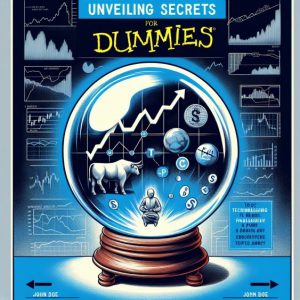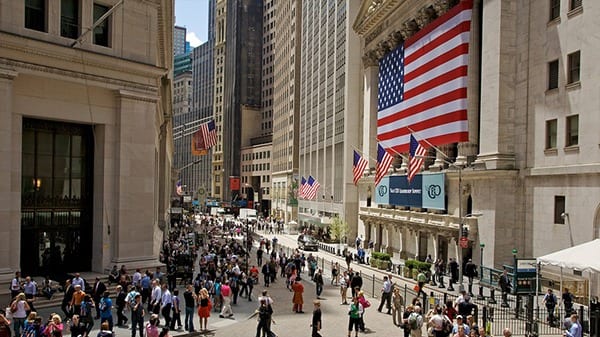The Wall Street
In the world of finance, trust is a currency that holds immeasurable value. Wall Street, the epicentre of global financial markets, has long relied on the faith of investors to fuel its relentless growth. However, recent events have shaken the foundations of this trust, and at the center of it all are former President Donald Trump’s promises. In this article, we will delve into how Wall Street has been impacted by Trump’s pledges and why investors have become increasingly skeptical.
The Trump Era: A Pledge for Prosperity
When Donald Trump took office as the 45th President of the United States, he brought with him a slew of economic promises that resonated with both Main Street and Wall Street. Promising to deliver unprecedented economic growth, tax cuts, and deregulation, Trump’s vision for the American economy captivated investors and financial institutions alike.
The Trump Tax Cuts: A Bold Commitment
One of Trump’s most notable pledges was his commitment to reducing corporate taxes. Under his leadership, Congress passed the Tax Cuts and Jobs Act of 2017, which significantly lowered the corporate tax rate from 35% to 21%. This dramatic cut was expected to boost corporate profits and, in turn, drive stock prices higher, a prospect that thrilled investors.
Wall Street’s Initial Optimism
In the early days of Trump’s presidency, Wall Street responded with unwavering optimism. Stock markets surged to record highs, and investors poured their money into equities, believing that Trump’s economic policies would unleash unparalleled prosperity.
A Reckoning for Wall Street
However, as time progressed, Wall Street’s confidence in Trump’s promises began to waver. The reality of governance clashed with the lofty expectations set by Trump’s economic vision. Here are some key factors that contributed to Wall Street’s diminishing trust in Trump’s promises:
1. Trade Wars and Tariffs: A Double-Edged Sword
While Trump’s “America First” approach to trade was designed to protect American industries and jobs, it led to a series of trade disputes and tariffs with key trading partners, particularly China. These tit-for-tat trade tensions rattled financial markets, causing uncertainty and volatility.
Investors, initially hopeful that Trump’s tough stance on trade would yield favorable results, found themselves on edge as the trade war escalated. The unpredictability of trade negotiations and the potential for retaliatory measures left investors anxious and hesitant to commit their capital.
2. The Federal Reserve and Interest Rates
Another crucial aspect of Wall Street’s trust in Trump’s promises revolved around monetary policy. While Trump advocated for lower interest rates to stimulate economic growth, the Federal Reserve, an independent entity, retained control over interest rate decisions.
The public disputes between Trump and the Federal Reserve, where he frequently criticized the central bank for not lowering rates more aggressively, created uncertainty. Investors questioned whether the Fed would bow to political pressure or maintain its commitment to data-driven policy decisions.
3. The Pandemic Disrupts the Economy
No one could have predicted the COVID-19 pandemic, which wreaked havoc on economies worldwide. As the pandemic unfolded, Wall Street had to grapple with a crisis that transcended politics. The economic fallout was severe, with lockdowns and business closures causing massive job losses and a historic recession.
Trump’s ability to manage the pandemic and its economic fallout became a litmus test for his promises of economic prosperity. The markets reacted with volatility as news of the pandemic’s progression and government responses dominated headlines.
Wall Street’s Changing Sentiment
As the challenges mounted, Wall Street’s sentiment began to shift. The initial euphoria over tax cuts and deregulation gave way to a more cautious and critical assessment of Trump’s economic policies. Investors, once eager to embrace Trump’s vision, started to question the feasibility of his promises.
Trump’s Promises: A Double-Edged Sword
It’s essential to acknowledge that Trump’s promises were a double-edged sword for Wall Street. While they initially fueled optimism and market gains, they also introduced a level of unpredictability and volatility that investors found unsettling.
The Unpredictability Factor
One of the main reasons Wall Street began losing trust in Trump’s promises was the unpredictable nature of his presidency. Trump was known for using his Twitter account to make sudden policy announcements and statements that could dramatically impact financial markets. This unpredictability made it challenging for investors to plan their strategies with confidence.
For instance, Trump’s tweets on trade negotiations often triggered sharp market movements. Investors had to constantly monitor his social media activity, creating an environment where market sentiment could swing rapidly based on a 280-character message.
The Impact of Political Turbulence
In addition to the unpredictability factor, Wall Street had to contend with political turbulence throughout Trump’s presidency. Impeachment proceedings, investigations, and divisive rhetoric added an extra layer of uncertainty to the financial landscape.
Investors prefer stability and predictability, as they allow for better long-term planning and risk management. The constant state of political flux during the Trump era made it challenging for Wall Street to fully embrace his economic promises.
The Fallout: Wall Street’s Trust Erodes
As Wall Street grappled with these challenges, the erosion of trust in Trump’s promises became increasingly evident. Investors, who initially saw his presidency as a golden age for the markets, grew wary of the risks associated with his policy decisions and the potential for market-disrupting tweets.
The Trade War Toll
The trade war with China had a profound impact on Wall Street’s trust in Trump’s promises. While Trump insisted that the United States would come out victorious and secure better trade deals, the prolonged nature of the dispute took a toll on global markets.
Investors watched as tariffs were imposed, retaliatory measures were taken, and negotiations seemed to drag on endlessly. The uncertainty surrounding the trade war made it challenging for businesses to make long-term plans and investors to assess the true economic impact.
The Federal Reserve’s Independence
The public disputes between Trump and the Federal Reserve also contributed to the erosion of trust. While Trump advocated for lower interest rates, the Fed had to balance its mandate of promoting maximum employment and stable prices. The perception that political pressure might influence monetary policy decisions raised concerns among investors about the central bank’s independence.
The Fed, under Chairman Jerome Powell, consistently emphasized its commitment to data-driven decision-making and maintaining its independence from political considerations. However, the ongoing public disagreement between Trump and the Fed undermined confidence in the central bank’s ability to operate free from political influence.
Pandemic-Induced Uncertainty
The COVID-19 pandemic brought unforeseen challenges to the forefront. As the virus spread globally and governments implemented lockdowns, financial markets experienced extreme volatility. Investors were confronted with the harsh reality of a pandemic-driven economic recession.
Wall Street was closely watching how Trump’s administration handled the crisis. The effectiveness of government responses, the development of vaccines, and the overall management of the pandemic played a critical role in shaping investor sentiment.
Other Stories of Interest

Market Timing Strategies: Debunking Flawless Predictions

Dow 30 Stocks with Dividends: A Winning Strategy for Income Investors

Collective Behavior Generally Takes Which of the Following Forms?

Market Psychology and Crowd Dynamics: Adapt, Adjust or Vanish

Harnessing Collective Behavior: Strategies for Investment Success

Unlocking Value in Equal-Weighted Index Funds: Benefits and Strategies

What Caused the 1987 Stock Market Crash: Could It Happen Again?

Active vs Passive Investors – The Power of Discipline

Investing allows you to beat inflation and maintain the purchasing power of your money over time

Mass Psychology of Fascism: Unmasking Bombastic News

OVV Stock Forecast: Buy, Hold, or Sell?

What Does a Death Cross Mean in the Stock Market? Exploring Its Significance

Financial Freedom Book: A Pinch of Salt, a Splash of Whiskey

Unveiling Secrets: Technical Analysis for Dummies




